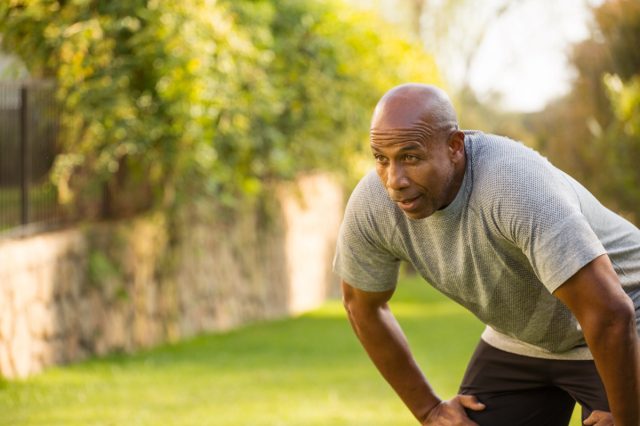5 Breathing Mistakes That Are Destroying Your Body After 50—and What to Do Instead

Does taking the stairs leave you more winded than it used to? Are you noticing that recovery from simple activities takes longer than before? You're not alone. As someone who has spent decades studying both traditional medicine and holistic healing, I've discovered that the way we breathe can profoundly impact how we age.
Breathing isn't just about oxygen; it's a powerful tool for health, vitality, and longevity. Yet, many of us make critical mistakes that could be silently sabotaging our health—especially after 50. The good news? With a few simple changes, you can use your breath to feel more energized, improve recovery, and enhance resilience. Here are five common breathing mistakes and practical solutions to help you live your best life at any age.
Mouth Breathing

Breathing through your mouth may feel natural, but it bypasses your body's first line of defense: the nose. Nasal breathing generates nitric oxide (NO), a vital molecule that kills bacteria, fights pathogens, and helps deliver oxygen throughout your body. Without it, mouth breathers often struggle with poor oxygen uptake and over-breathing, which can lead to fatigue and stress.
What to Do Instead:
- Consciously breathe through your nose during everyday activities like walking or cooking.
- Try mouth taping with medical-grade tape while sleeping to encourage nasal breathing (consult your doctor if you have sleep apnea).
- Give your body time to adjust, especially if you're not used to nasal breathing.
Overbreathing

Breathing too much may sound counterintuitive, but excessive oxygen can increase oxidative stress, which accelerates aging. Overbreathing often occurs due to shallow chest breathing or mouth breathing, both of which limit optimal gas exchange and strain the body.
What to Do Instead:
- Practice diaphragmatic breathing by placing one hand on your stomach and the other on your chest. Breathe naturally and notice which hand moves more. If your chest rises higher, focus on expanding your belly with each inhale.
- Slow your breathing by inhaling through your nose and exhaling through your mouth, aiming for fewer, fuller breaths.
Unmanaged Stress

Chronic stress triggers a "fight or flight" response, causing shallow, rapid breathing even when there's no immediate danger. Over time, this can leave your body in a constant state of tension, contributing to fatigue and poor health.
What to Do Instead:
- Incorporate mindful breathing exercises into your daily routine. Try inhaling for 4 seconds, holding for 2, and exhaling for 8. This activates your parasympathetic nervous system, helping you relax.
- Make this practice part of your morning routine to start your day feeling calm and centered.
Skipping a Cool-Down After Exercise

Exercise is essential for staying fit as we age, but stopping abruptly can leave you panting and disrupt your breathing rhythm. This can strain your body and limit recovery.
What to Do Instead:
- Cool down gradually by walking after jogging or floating in the pool after swimming.
- Focus on deep, steady nasal breathing during your cool-down to stabilize your heart rate and respiration.
Poor Posture
As we age, poor posture can compress the lungs and diaphragm, making breathing less efficient. This not only impacts oxygen delivery but can also contribute to back and neck pain.
What to Do Instead:
- Invest in ergonomic chairs, mattresses, or yoga practice to improve spinal alignment.
- Try this quick exercise: Take a deep breath and hold it for 3–5 seconds. Notice how your spine naturally straightens. Relax your shoulders, then exhale slowly. Repeat this a few times each day, especially when sitting.
Final Thoughts

Breathing is one of the few bodily functions we can consciously control, making it a powerful tool for health and longevity. By addressing these common mistakes, you can optimize your breath and unlock its full potential to support your health after 50.
Want to learn more? Niraj Naik is a former pharmacist turned wellness innovator and founder of SOMA Breath. His groundbreaking methods, backed by research from Cambridge University, have helped thousands of people transform their health through the power of breathwork. Follow him on Instagram @nirajnaikofficial or visit somabreath.com to discover more.








